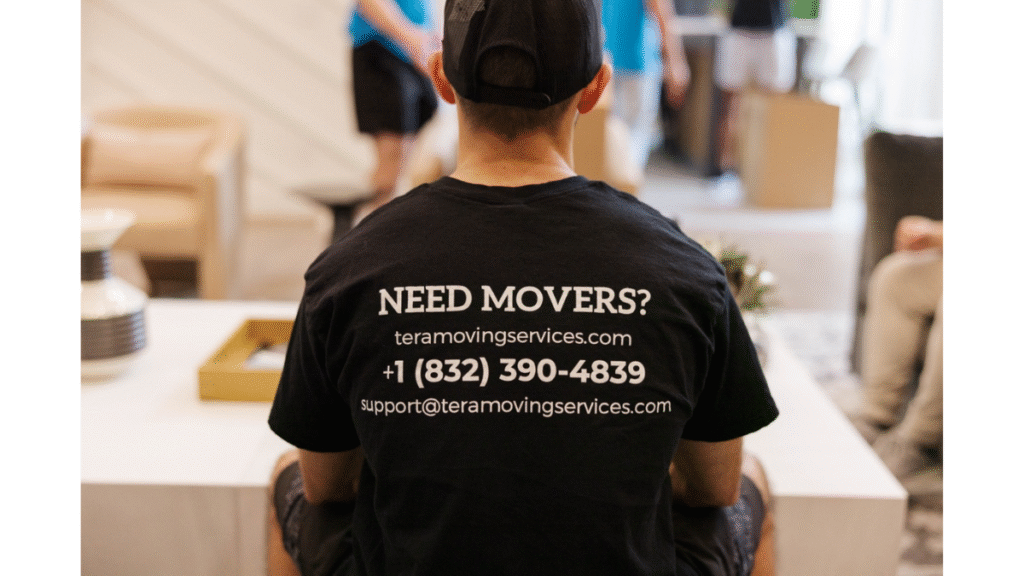There’s no shortage of advice on how to pack, plan, and prepare for a move. But no matter how many checklists you follow, some lessons can’t be found on a to-do list.
They’re learned the hard way—between bubble wrap, dust bunnies, and that one mystery box you still haven’t unpacked six months later.
Here are seven things you only truly learn once you’ve moved—and how to be better prepared for each one.
1. You Own More Than You Think
You may feel like a minimalist… until you try to move.
Opening every drawer, closet, and storage bin reveals just how much “just in case” stuff you’ve accumulated. Old cords, mismatched Tupperware, unread books—things you thought were harmless until you had to carry them up three flights of stairs.
What to do next time:
Begin purging long before you pack. If an item doesn’t serve your current lifestyle, consider whether it deserves a place in your new home. Downsizing isn’t just about space—it’s about mental clarity.
2. Labels Are Life
There’s a moment post-move when you’re surrounded by identical boxes and you swear you packed your coffee maker somewhere obvious—but it’s nowhere to be found.
Labeling vaguely (“kitchen stuff”) is a rookie mistake. It leads to digging, repacking, and unnecessary frustration.
What to do next time:
Label by room and contents. Include markers like “daily use” or “open first” on priority boxes. And maybe tape a cheat sheet to the fridge for where things are hiding.
3. Moving Is a Mental Reset
Something shifts when you set up your life in a new space. You start fresh routines, reevaluate habits, and often shed more than physical belongings.
This is an underrated benefit of moving: it forces you to get intentional.
You may suddenly realize you don’t need a dozen throw pillows, or that your bookshelf no longer reflects your interests. The new space offers not just a layout change—but a mindset shift.
4. The First 48 Hours Matter More Than You Think
How you spend the first two days in your new place sets the tone for your transition.
Waiting too long to unpack essentials, set up a routine, or plug in the coffee pot can make the space feel unfamiliar and unsettled for weeks.
What to do next time:
Prioritize sleeping areas, bathrooms, and the kitchen. Set up lamps and curtains early to soften the “cold” feel of an empty house. These small moves provide comfort and normalcy from day one.
5. Kids and Pets Notice Everything
Your pet might stop eating. Your child may get extra clingy. Even adults act differently after a big transition.
Change disrupts everyone’s sense of control, but kids and animals lack the vocabulary to explain what’s off. Behavioral changes are their way of adapting.
What to do next time:
Keep routines steady—meals, naps, and bedtime. Create a familiar “corner” with toys or favorite blankets. If you’re working with a moving company like Tera Moving Services, communicate ahead of time about accommodations to keep kids and pets safe and comfortable during the move.
6. Cheap Supplies Usually Cost More Later
That discounted roll of packing tape? The reused box from a neighbor’s attic? They may hold for now—but they don’t hold well.
Torn boxes and faulty tape lead to damage and disorganization. Investing in quality packing supplies prevents broken items and broken spirits.
What to do next time:
Stock up on strong tape, sturdy boxes, and bubble wrap. And when in doubt, let moving professionals handle fragile items. Tera Moving Services, for example, is known for using high-quality protective materials as part of a seamless packing strategy.
7. Moving Isn’t Just a Physical Job—It’s an Emotional One
You expect to be sore after lifting boxes. What you might not expect is the emotional weight that comes with leaving a space you called home.
Memories are embedded in floorboards, window sills, and familiar light fixtures. Leaving them behind—even for good reasons—can sting.
What to do next time:
Say goodbye on purpose. Walk room to room. Take photos. Let yourself feel it. Then focus on the new memories you’re about to create.
The emotional reset that comes with moving is powerful, and acknowledging it is part of moving forward with intention.
Final Thought
The most useful lessons about moving aren’t in your packing checklist—they’re in the experience itself. The good news? With every move, you become more thoughtful, more prepared, and more aligned with the life you’re building.
Whether it’s your first or fifth move, partnering with the right moving company gives you the clarity and calm to focus on what really matters: making your new house feel like home.
Want to hear more tips? Please look at our page for more informative and helpful blog posts.







